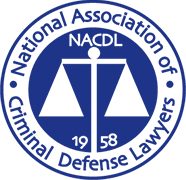Criminal Justice Act Panel for the Western District of Kentucky
Panel Attorneys Newsletter
Message from your “Panel Rep”:
This month’s edition offers news about a program, still in the testing stage, that the United States Probation Office hopes will reduce revocations of supervised release in coming years. There’s also information about the Fair Sentencing Act’s recent reform of mandatory minimum terms for crack cocaine offenses, and details about a discount that LexisNexis is offering CJA attorneys for the purchase of trial-preparation software. I hope you’ll find something useful among this month’s offerings.
–Mike Mazzoli
From the Probation Office:
Pilot project may help reduce revocations:
About 84% of federal offenders in the Western District of Kentucky successfully complete their term of supervision. Even though this success rate is already better than the national average of 72%, Kathryn Jarvis writes that the Probation Office is engaged in an ambitious effort to develop an early-intervention program for those who are statistically most likely to be the subject of revocation proceedings. In a study of revocation cases, the Probation Office identified certain characteristics that appeared frequently in the population of revoked offenders: first contact with the justice system before age 18; history of alcohol and drug abuse; absence of a father figure when growing up; and early violation of terms of supervision. Hoping to help this target group, the Probation Office implemented a new program called “MRT” (for “Moral Recognation Therapy”), which Kathryn describes as “a step-by-step cognitive behavioral treatment system designed to alter how offenders think and how they make decisions about ‘right’ and ‘wrong.’” The program is still in development, so it’s not yet available as a formal sentencing option, but if it proves successful, it will become a valuable asset for helping our clients stay out of prison. Kathryn’s essay about the MRT project is attached.
New and Noteworthy:
Fair Sentencing Act changes mandatory minimum rules for crack cocaine:
On August 3, the threshold weight for crack cocaine mandatory minimum punishments rose to 28 grams (one ounce) for the five-year minimum (up from 5 grams), and 280 grams for the ten-year minimum (up from 50 grams). As Maine Federal Defender David Beneman discusses in the attached materials, it is unlikely that the higher thresholds will apply retroactively to offenses committed before August 3, although the new law should govern conduct that begins before August 3 and continues after that date. The new law also changes the Sentencing Guidelines by requiring two-point offense level enhancements for drug-trafficking defendants who used or threatened violence, engaged in bribery, maintained a crack house, or committed other particularly culpable acts. You’ll find a lot of helpful details about the new law in David Beneman’s attachment.
New edition of Federal Convictions Reversed is available:
This is a valuable compilation of appellate cases favoring the interests of criminal defendants, organized by legal issue (discovery, arrest, jury selection, and so on). The latest edition is attached.
Looking for Help?
Special CJA discount for LexisNexis trial-preparation software:
Thanks to the efforts of the Office of Defender Services, CJA panel attorneys can take advantage of a substantially reduced purchase price for LexisNexis’s CaseMap suite, a group of programs designed to manage, organize, and connect case facts, legal issues, key players, and documents. The regular price is $775.00; CJA attorneys who act before October 31 can buy the software for $290.50, and can qualify for free upgrades and technical support. You’ll find an attachment with all the details.
For Your Calendar:
Train the Trainers Workshop, November 3-5, Santa Fe:
This is a tuition-free program offered by the Office of Defender Services to enhance training skills and expand the pool of educated and experienced trainers available to serve as faculty at Training Branch events and similar seminars. Participants discuss and apply principles of adult learning, effective training design, and persuasive presentation techniques and methodologies; many of the skills taught are similar to those used in courtroom advocacy and are transferable to that arena. A draft agenda is attached; to get more information or to register, go to www.fd.org.
Comments & Suggestions:
Do you have a topic for a future newsletter? Is there a CJA issue that’s always nagged you? Your thoughts are welcome – write to Mike Mazzoli at MazzoliCJA@aol.com. And remember: Whenever you have a legal question, the Office of the Federal Defender is available to help – call them at (502) 584-0525. If it’s a billing question, try the Clerk’s Office at (502) 625-3548. And you can call Mike Mazzoli at (502) 736-4764 with any question or comment about your CJA service.
Arranging conferences with clients in the Marion County Detention Center:
In-person visits:
It is necessary to schedule appointments in advance when you want to visit a client being held in the Marion County Detention Center in Lebanon. You can schedule attorney visits between the hours of 9:00-11:00 a.m. and 12:00-4:00 p.m., Monday through Friday; it is sometimes possible to arrange appointments at other hours. It’s best to avoid scheduling a meeting during the inmates’ mealtimes, which are 11:00 a.m. and 4:00 p.m. To reserve a timeslot for a client visit, call 270-692-5802 and ask for Lou Gribbins (ext. 227) or Annemarie Stiles (ext. 238).
Video conferencing is also available.
You’ll need a subscription with WebEx; pricing information and other details regarding that service can be found here.










